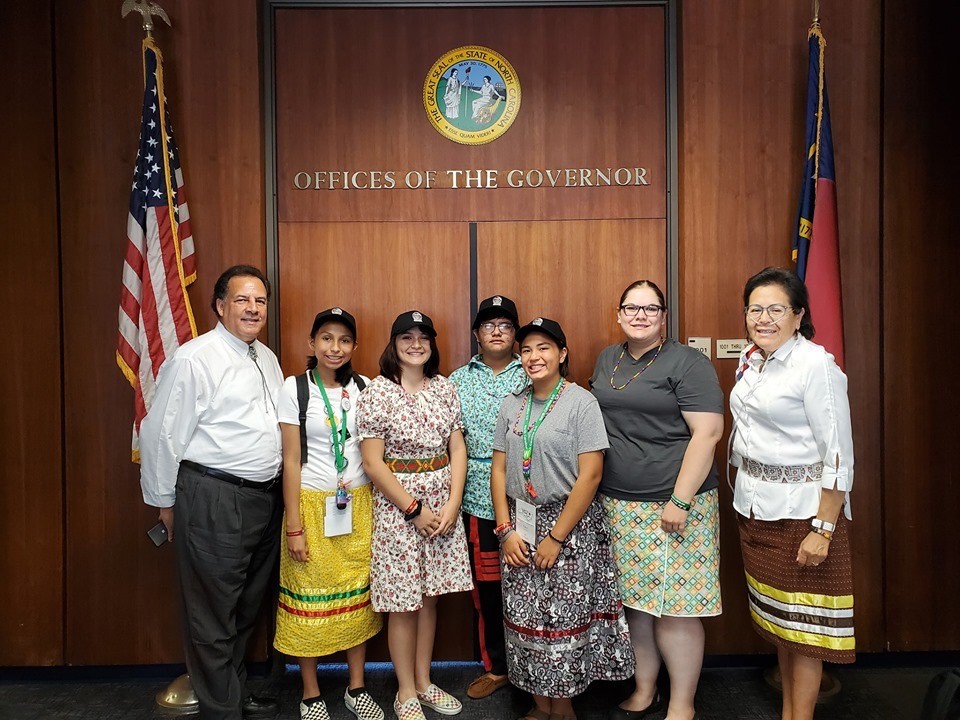4-H Youth Teach Trail of Tears Workshop in Raleigh
go.ncsu.edu/readext?625300
en Español / em Português
El inglés es el idioma de control de esta página. En la medida en que haya algún conflicto entre la traducción al inglés y la traducción, el inglés prevalece.
Al hacer clic en el enlace de traducción se activa un servicio de traducción gratuito para convertir la página al español. Al igual que con cualquier traducción por Internet, la conversión no es sensible al contexto y puede que no traduzca el texto en su significado original. NC State Extension no garantiza la exactitud del texto traducido. Por favor, tenga en cuenta que algunas aplicaciones y/o servicios pueden no funcionar como se espera cuando se traducen.
Português
Inglês é o idioma de controle desta página. Na medida que haja algum conflito entre o texto original em Inglês e a tradução, o Inglês prevalece.
Ao clicar no link de tradução, um serviço gratuito de tradução será ativado para converter a página para o Português. Como em qualquer tradução pela internet, a conversão não é sensivel ao contexto e pode não ocorrer a tradução para o significado orginal. O serviço de Extensão da Carolina do Norte (NC State Extension) não garante a exatidão do texto traduzido. Por favor, observe que algumas funções ou serviços podem não funcionar como esperado após a tradução.
English
English is the controlling language of this page. To the extent there is any conflict between the English text and the translation, English controls.
Clicking on the translation link activates a free translation service to convert the page to Spanish. As with any Internet translation, the conversion is not context-sensitive and may not translate the text to its original meaning. NC State Extension does not guarantee the accuracy of the translated text. Please note that some applications and/or services may not function as expected when translated.
Collapse ▲‘We’re Still Here: The Trail of Tears and the Strength of the Cherokee People’ was the title of a workshop created and presented by EBCI 4-H youth and adult volunteers in Raleigh during North Carolina 4-H Congress last month. 4-H Congress is a statewide youth event with over 500 in attendance that culminate the year with competitions, workshops, fellowship, service projects, and a dance…or two.
Over 60 youth from across the state attended the workshop session. They went to four stations learning about the Cherokee Removal on the Trail of Tears, drawing a map of the northern route on a huge piece of paper, discussing cultural stereotypes, and learning about the corn bead legend while making corn bead keychains.
EBCI 4-H members Lucian Davis, Kaelin Jones, Shelby Solis, Carys Holiday, Joanna Shipman, and Julian Lanning were in attendance to teach and facilitate the workshop with the assistance of Chi Shipman and Marvel Welch, 4-H volunteers.
‘We had kids and adults coming up after the workshop saying they wanted to attend, but couldn’t get tickets. We had lots of people saying we needed to teach at every 4-H event. The interest in this workshop was overwhelming in the best way.’ said Sally Dixon, EBCI 4-H Agent.
The older 4-H members were able to stay for the entire 4-H Congress event from July 19-22. They were able to participate in a one-hour workshop with Dr. Jackie Bruce, Assistant Professor at NC State University, about cultural stereotypes and communicating culture to others, visited the Museum of History and the Museum of Natural Science, and went on a tour of the North Carolina Commission of Indian Affairs with Executive Director, Greg Richardson. They even participated in a three-hour service project packaging 80,000 macaroni and cheese meals to be distributed to food pantries in North Carolina. Youth were able to make friends from across the state while increasing their capacity to be better citizen leaders here in Cherokee and beyond.
EBCI 4-H is a youth development program provided by N.C. Cooperative Extension. There are over 6 million youth in the United States involved with 4-H to learn citizenship, leadership, and life skills. Youth aged 5-18 are eligible to join the EBCI 4-H program to learn about healthy living, STEM, civic responsibility, and career development.




